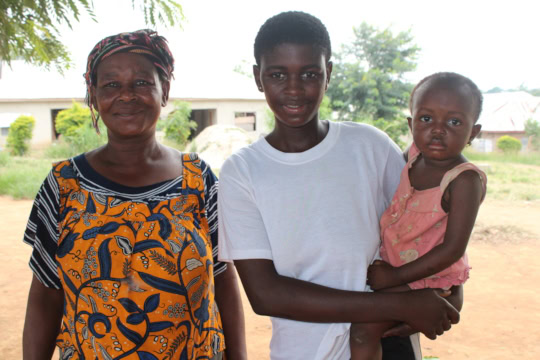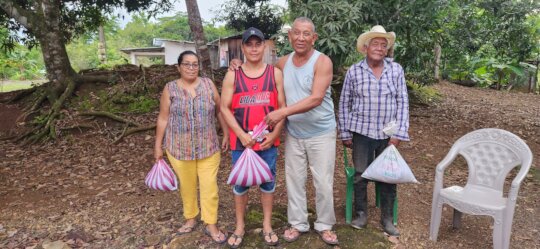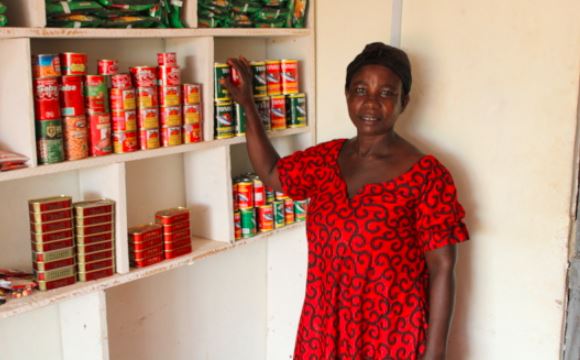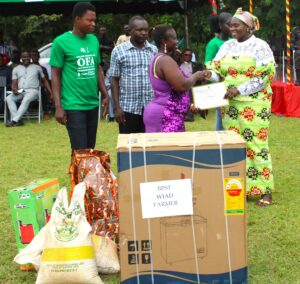Strength in unity: Kwaso group a shining example

Group members display savings books
The average Ghanaian is individualistic in nature; wants to do everything all by himself or herself and has little trust in partnership. According to many, this explains why Ghana has fewer industries capable of employing more than 50 people. Many indigenous Ghanaian industries have died with their originators as those around were never allowed to play the much needed sustainability roles.
Culturally, men are considered superior to women in Ghana and this greatly hinders their progress. In many cases women have to consult before they act and this somehow is backed by a Ghanaian proverb ‘sbaa t tuo a twene barima dan mu’, which translates ‘if a woman buys a gun it is the man who keeps it.’ To the detriment of building a better nation, this culture has killed many great ideas thought of by women. When women unite they conquer and move forward.
The Self-Help International (SHI) micro-credit program is helping to build and strengthen the sense of togetherness and culture of partnership among its more than 400 female beneficiaries. These women have built good homes, take care of their families and brought development to their communities.
Nokware Women’s group from Kwaso is one such group. In February 2007 numbering just five (5) they joined the SHI micro-credit program and by dint of hard work and unity their membership grew exponentially.
During the 2012 National Farmers’ Day celebration they were crowned the best women’s group in the Ejisu-Juaben Municipal in Ashanti region of Ghana. They received a certificate, building materials, knapsack sprayer, machetes and rain boots. Though important, these items never quenched their thirst to break more barriers.
Kwaso Women’s group at the 2012 National Farmers’ Day
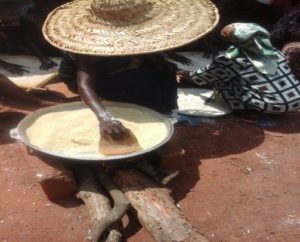
Group members processing gari
In 2013 they added cassava processing to their various income generating activities. The environment for the processing is quite difficult. The processing is done in the open and they are at the mercy of the weather and smoke. This notwithstanding, they produce one of the best gari in the municipality.
In a meeting with the executive director of SHI in March 2014, it became apparent that the way forward was for the group to relocate to pave way for shed construction and mechanization. The women made a promise to relocate for further development.
In September 2014, SHI learned that the women had met with the chief and elders and received at no cost, a parcel of land valued at 5,000 Ghanaian cedis ($1566). It is almost impossible for any single woman from the community to chalk this feat.
With this development, the group will process more cassava which will address a critical challenge facing Ghanaian farmers; lack of ready market for farm produce. More employment avenues shall be created, especially for the youth which will minimize crime rates in the community and the surrounding area.

